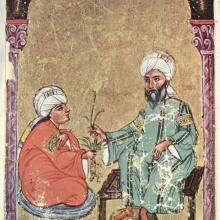In Syriac scholarship, knowledge was intimately tied to the scholar as a person who possessed it. It was firmly embedded in the web of customs, morals, and moderations that the scholar embodied, and was indispensable to the service of a transcendent good of human life. In this form, knowledge was defined as wisdom, the grounds of all the epistemic activity of Syriac scholars.
In this working group, we ask: What did wisdom mean for different Syriac authors and schools? Where in the extant texts do Syriac writers reflect explicitly on their pursuit of wisdom? And what epistemic and normative relationships between scholarly experience and mystical experience do their works reveal?


